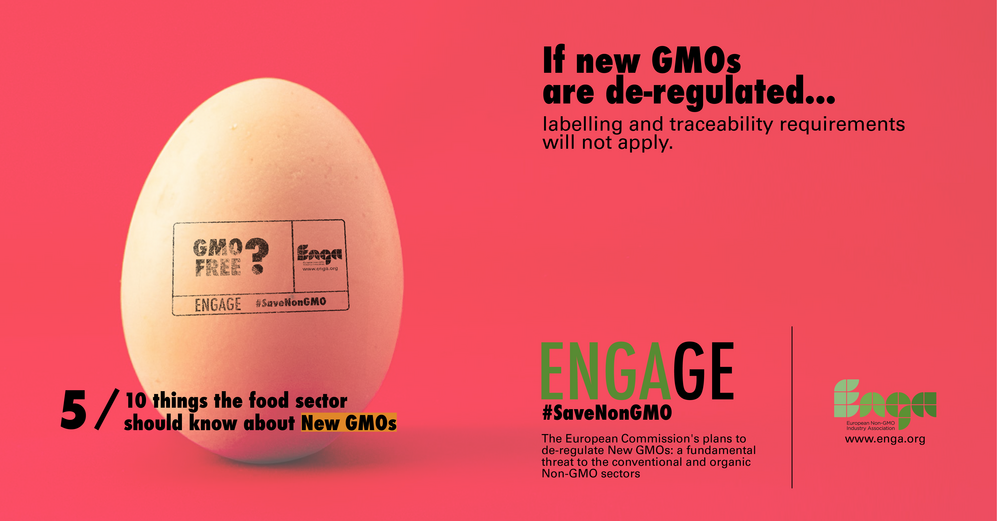The road to de-regulation
In September 2021 the European Commission officially started its de-regulation process of New GMOs (such as CRISPR/Cas, TALENs and others), launching an inception impact assessment. Now it is asking stakeholders in a public consultation, (open until 22 July) how a future legislation should look like. Unfortunately, the European Commission’s consultation is framed in such a biased way that it leaves little room for voices which are against de-regulation to express their opinion for maintaining the status quo (e.g. regulation of New GMOs = risk assessment and labelling).
If this de-regulation goes ahead: goodbye to labelling
In July 2018, the European Court of justice (ECJ), Europe’s highest court, ruled that all products stemming from New Genomic Techniques are GMOs. For New and old GMOs the same EU GMO legislation therefore applies. This means that old and New GMOs are subject to authorisation procedures with a food safety and environmental risk assessment before coming on the market. After market authorisation, the EU’s GMO legislation ensures detectability, traceability and labelling of GMOs – and thus transparency and freedom of choice for breeders, farmers, food and feed producers, food retailers and consumers.
De-regulation will mean getting rid of risk assessments, as well as traceability and labelling requirements for approximately 95% of all New GM plants currently in the development pipeline.
The current EU legislation avoids the risk of selling untested and invisible GMOs. It guarantees that business operators keep control over their food and feed production value chains and that consumers can avoid GMOs in their food. Last, but not least, the current EU GMO regulation is balanced – it enables authorisation and placing on the market of GMOs and it enables food and feed sectors and consumers to avoid them if they want to. This will not be the case for New GMOs in a post de-regulation world.
Why do New GMOs need to be labelled?
A GMO labelling for New GMO products is highly important for consumers, as well as for all economic operators in the value chain (breeders, farmers, beekeepers, food and feed processors, retailers). A GMO label enables freedom of choice, transparency, traceability, post marketing monitoring and product recalls in case a product placed on the market is subsequently found to be harmful.
For the conventional and organic Non-GMO sectors labelling of New GMO products is at the core of its business. Without labelling, the Non-GMO sectors (and consequently, the whole EU feed and food sector) would run the risk to unwittingly and unintentionally sell GMOs to its customers.
It’s what consumers want
Throughout the entire food sector, the trend is towards more transparency. So how will consumers – generally GMO-sceptic – feel when they are faced with New GMOs unlabelled and untraceable in their food? An EU wide opinion poll commissioned by the Greens in the European Parliament in March 2021 shows that a majority of Europeans want GM food to be labelled as GMO, including also food produced with New GM techniques: Some 86% of respondents who have heard about GMOs want GM food to be labelled as GMO. 68% of respondents who have heard about New GM techniques like CRISPR want GM food produced with these techniques also labelled as GMO.
If New GMO products are as convincing and successful as it is promised, they should easily be also convincing and successful under the current EU GMO legislation and its labelling regime. Otherwise, can people trust a technology and its products which can only succeed if it stays invisible for the public, including economic operators and consumers?
